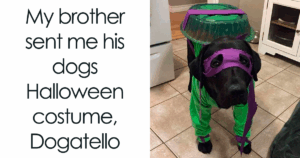11 Real Words So Bizarre, You’ll Swear They’re Made Up—But They’re Not!
Ever find yourself tangled in the labyrinth of English grammar, only to be even more baffled by some words that seem too bizarre to be real? Believe me, you’re not alone. The English language, known for its maddening rules and exceptions, doubles as a veritable playground of quirky words that would make Dr. Seuss grin with approval—or send a comedian into fits of laughter. These aren’t just any words; they’re bona fide entries from the dictionary, handed down through generations who clearly had a mischievous sense of humor. From describing everyday jitters to hurling insults that would leave modern-day trolls speechless, these terms might make you chuckle, scratch your head, or even want to toss them into your next chat just to watch the reaction. Curious about which ridiculous real words have stood the test of time? Buckle up for a wild linguistic ride that’s as entertaining as it is bewildering! LEARN MORE
The English language is well known for having complex rules about grammar and spelling, often loaded with exceptions and special use cases. But the quirks of English don’t stop at confusing grammar—our language also happens to be a treasure trove of words so delightfully absurd, so wonderfully preposterous, that they sound like they were plucked straight from the pages of a Dr. Seuss book or improvised during a comedy sketch.
The words below are legitimate, dictionary-certified terms that have survived for centuries, passed down through generations of English speakers who apparently had a sense of humor about their vocabulary. Some describe everyday situations we’ve all experienced but never had a name for. Others are elaborate insults that put modern put-downs to shame. A few are so obscure that even seasoned word nerds might not recognize them.
What they all have in common is their ability to make you smile, scratch your head, and wonder how on earth these words became part of our language. So prepare yourself for a linguistic journey through some of the most entertaining, bewildering, and downright silly words the English language has to offer. This list celebrates real words that might evoke a double-take—and will definitely make you want to slip them into your next conversation.
- Bumfuzzle
- Snickersnee
- Wabbit
- Collywobbles
- Snollygoster
- Quomodocunquizing
- Taradiddle
- Borborygmus
- Kakorrhaphiophobia
- Absquatulate
- Slubberdegullion
Bumfuzzle
Bumfuzzle is a verb meaning “to confuse, perplex or fluster.” It may be a variation on dumfound.
Sample Sentence: This year’s corn maze was so complex, it bumfuzzled visitors.
Snickersnee

This noun means “a large knife” but can also refer to a knife fight. It ultimately derives from the Dutch words steken (“to thrust”) and snijden (“to cut”).
Sample Sentence: Conventional wisdom suggests one should not bring a snickersnee to a gun battle.
You Might Also Like …
Add Mental Floss as a preferred news source!
Wabbit
The etymology of this adjective, which comes from Scottish, is uncertain, but it means “weary or exhausted”—as in, how Elmer Fudd actually felt when he was trying nab Bugs Bunny.
Sample Sentence: Hunting rabbits all day without a catch left the predator feeling wabbit.
Collywobbles

Collywobbles, which dates back to the 1820s, refers to stomach pain or anxiety. A combination of colic and wobble, it perfectly captures that unsettled feeling we all know.
Sample Sentence: Speaking in front of a crowd gave Jane collywobbles.
Snollygoster
This creative insult describes a shrewd, unprincipled person—especially a politician—and is likely a variant of snallygaster, a fast-moving monster or ghost.
Sample Sentence: In 1952, Harry S. Truman referred to his political opponents as snollygosters. (He really did!)
Quomodocunquizing

Quomodocunquizing, a verb from the 1600s that combines the classical Latin word quōmodocunque with the suffix –izing, means “to make money by any means,” even if they’re questionable.
Sample Sentence: Side gigs and hustles weren’t enough for Joe to make ends meet; it was time to start quomodocunquizing.
Taradiddle
This word dates back to 1796 and describes pretentious nonsense or, sometimes, a petty lie. Nobody is sure how or even when this word came into being—a linguistic mystery!
Sample Sentence: You can’t blame the exhausted mom for telling her toddler the park was closed today—a forgivable taradiddle.
Borborygmus

Borborygmus refers to the rumbling sound made by gas moving through the intestines.
Sample Sentence: Eric skipped lunch and hoped his client couldn’t hear the borborygmus from across the conference table.
Kakorrhaphiophobia
This noun describes a fear of failure or defeat.
Sample Sentence: I feel a strong sense of kakorrhaphiophobia when I think about trying to pronounce kakorrhaphiophobia.
Absquatulate
Absquatulate is a slang term with two meanings: “decamp” (“to break down a camp site”) and “abscond” (“to leave suddenly”).














Post Comment